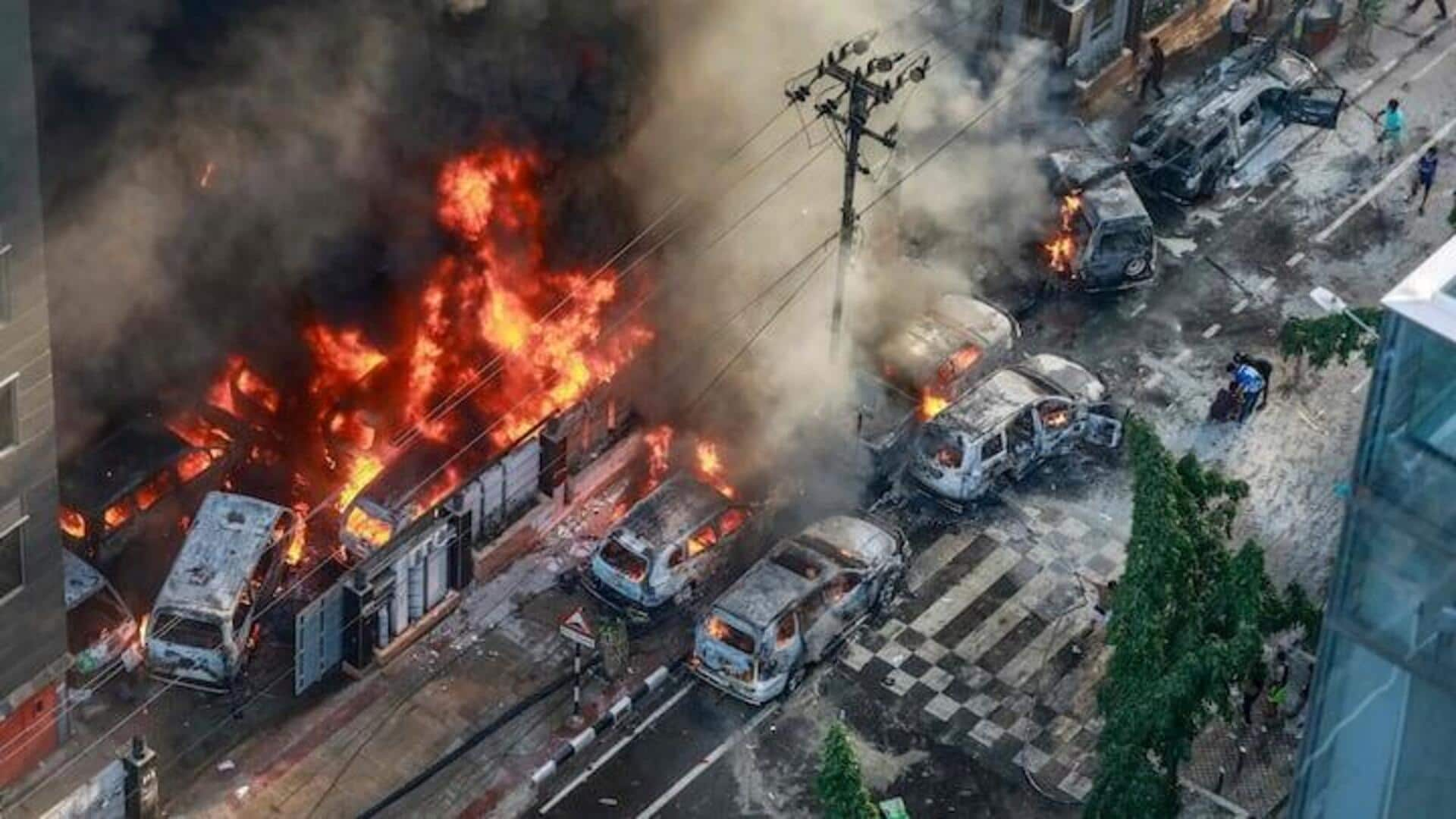
Bangladesh court scraps most job quotas that caused deadly unrest
What's the story
The Supreme Court of Bangladesh has scrapped most quotas for government jobs in the wake of student-led protests that have resulted in over 130 fatalities, as per local media reports. The court's Appellate Division overturned a lower court order that had reinstated these quotas just last month. Attorney General AM Amin Uddin told AFP news agency, "The Supreme Court has said the High Court verdict was illegal."
Context
Why does this story matter?
Cities across Bangladesh have been rocked by violent protests for weeks now, after the lower court reinstated the quota system. The quota system calls for the reservation of up to 30% of government jobs for relatives of veterans from the country's 1971 war of independence against Pakistan. Students protesting against the quota system argue that it is discriminatory and are demanding merit-based recruitment. This quota system was initially abolished in 2018 after massive protests.
Reserved positions
Limited quotas remain for specific categories
As per the new order, only a small percentage of civil service jobs would remain reserved under specific categories, Uddin clarified. According to him, 5% of these positions will be set aside for children of independence war veterans. Additionally, an extra 2% will be reserved for other categories. Meanwhile, Reuters reported that 93% of government jobs will be open to candidates on merit, without quotas.
Response to ruling
Unclear how the demonstrators would respond
It was unclear how the demonstrators would respond to the ruling. The streets near the Supreme Court were quiet immediately following the judgment, and army troops were stationed throughout Dhaka, according to a Reuters witness. Television footage showed a military tank stationed outside the Supreme Court's gate. The Sheikh Hasina government had imposed a curfew from Friday until Sunday morning, and police were given "shoot-on-sight" instructions as they battled to calm the unrest.
Protest details
Students Against Discrimination movement
The protests began on July 1 and later became known as the Students Against Discrimination movement. Protesters argue that the quota system will benefit supporters of Prime Minister Sheikh Hasina, whose Awami League party spearheaded the independence movement. However, Hasina defended the quota system, claiming that veterans, regardless of party affiliation, deserve the highest level of honor for their services to the struggle against Pakistan.